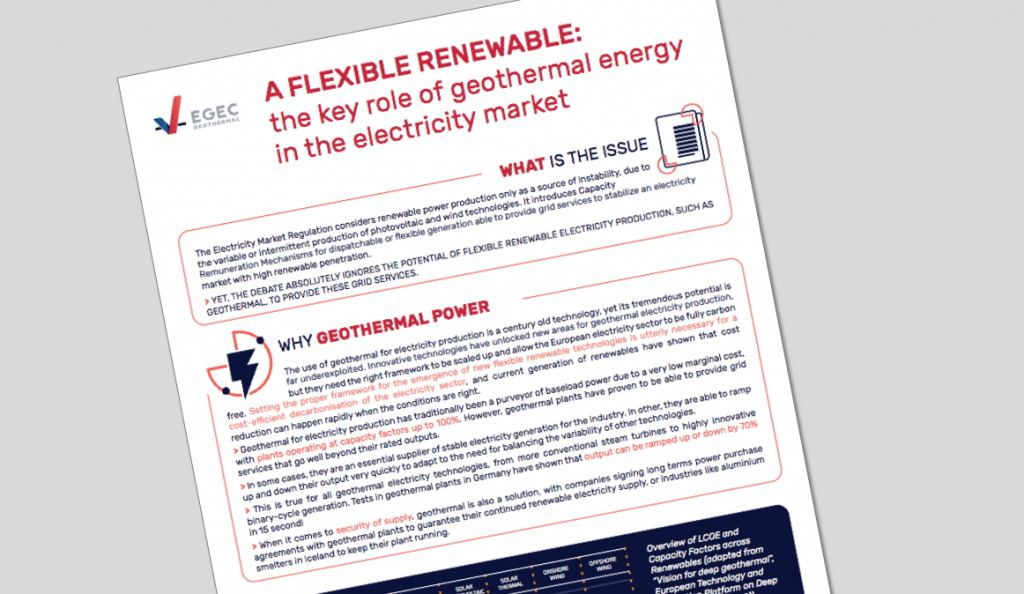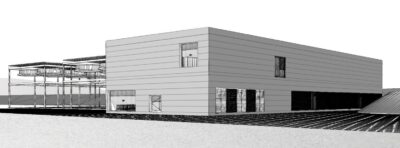EGEC highlights flexibility of geothermal in European electricity market
In a recently published position paper, the European Geothermal Energy Council (EGEC) highlights the flexibility that geothermal energy offers to the European electricity market.
In a position paper published July 12, 2018, the European Geothermal Energy Council (EGEC) provides its view on why geothermal energy is a key player for flexibility in the electricity market of Europe.
The (EU) Electricity Market Regulation considers renewable power production only as a source of instability, due to the variable or intermittent production of PV and wind technologies. It introduces Capacity Remuneration Mechanisms for dispatchable or flexible generation able to provide grid services to stabilize an electricity market with high renewable penetration.
Yet, the debate ignores the potential of flexible renewable production, i.e. geothermal, to provide such grid services.
Geothermal power plants can provide base-load or flexible generation. Their deployment, however, presents several challenges that first need to be overcome. To scale up geothermal electricity generation in Europe, innovative technologies need to be demonstrated and to reach market maturity. While several projects are being developed, they need adequate support to emerge as geothermal is a capital-intensive technology, which presents additional challenges to other resources, notably linked to the technology specific risk .
For new flexible renewable technologies to emerge in the European Electricity Market and provide much needed services to the grid, the Electricity Regulation needs to
- Provide for Priority Dispatch of Demonstration Projects (Article 11) – Priority dispatch is key for these technologies in the demonstration phase. Coupled with the possibility for feed-in tariffs for demonstration projects (REDII up to 2030), it provides a stable stream of income which lowers the costs by lowering the cost of capital – which is significant in projects that require massive upfront investments. Even while benefiting from priority dispatch these plants can still p
- Explicitly acknowledge the role of flexible renewable generation in providing grid services (Article 23) – While introducing capacity remuneration mechanisms, it must be explicitly stated that flexible renewable generation such as geothermal is eligible to participate in such mechanisms, so that these facilities are not only designed as a subsidy mechanism for outgoing fossil or nuclear generation capacity – in reverse to the rest of the European energy policies.
Factsheet (pdf)
Source: EGEC


















